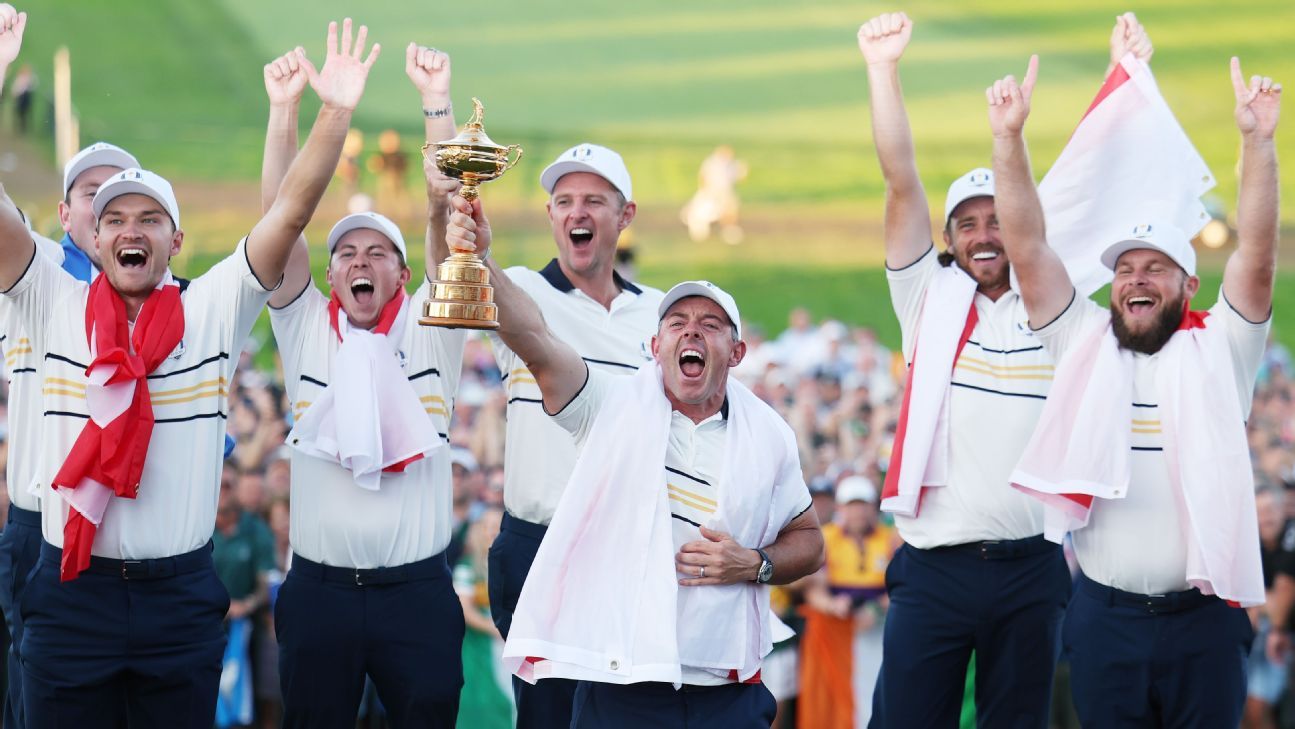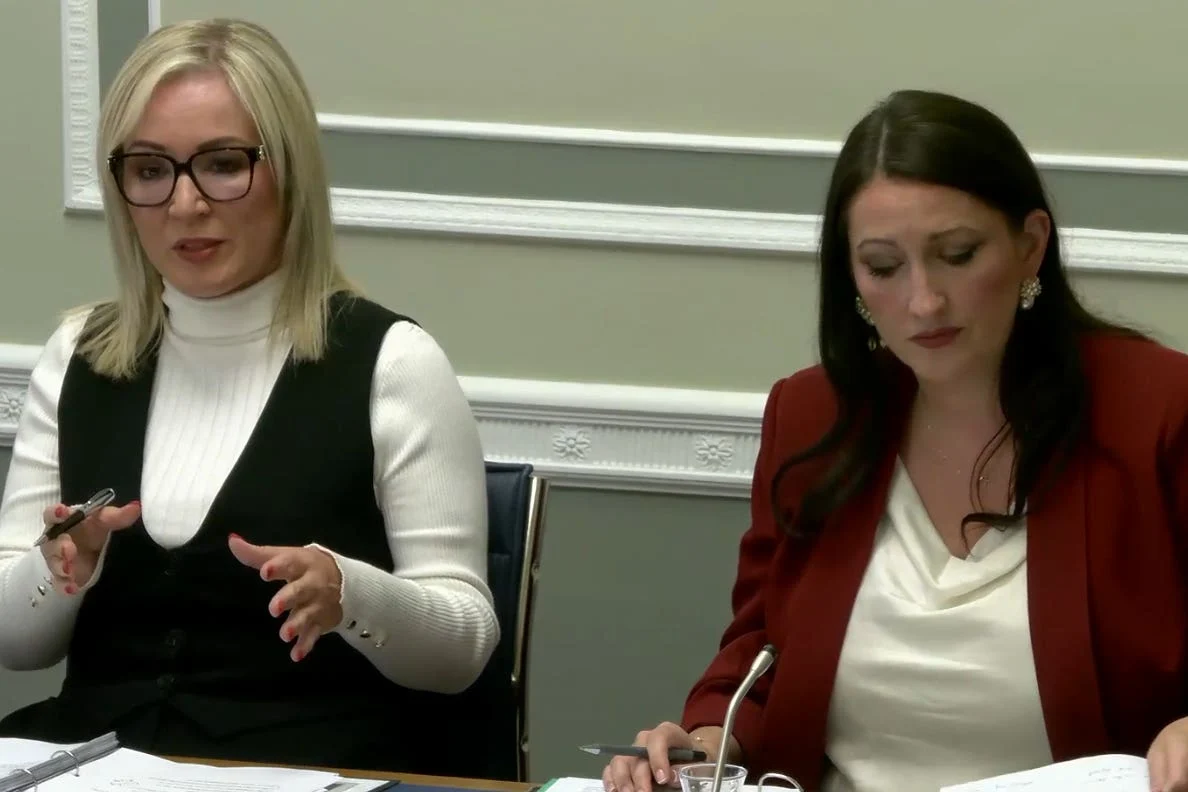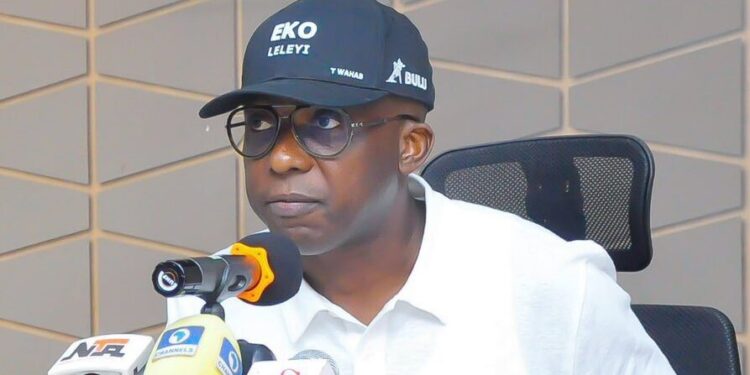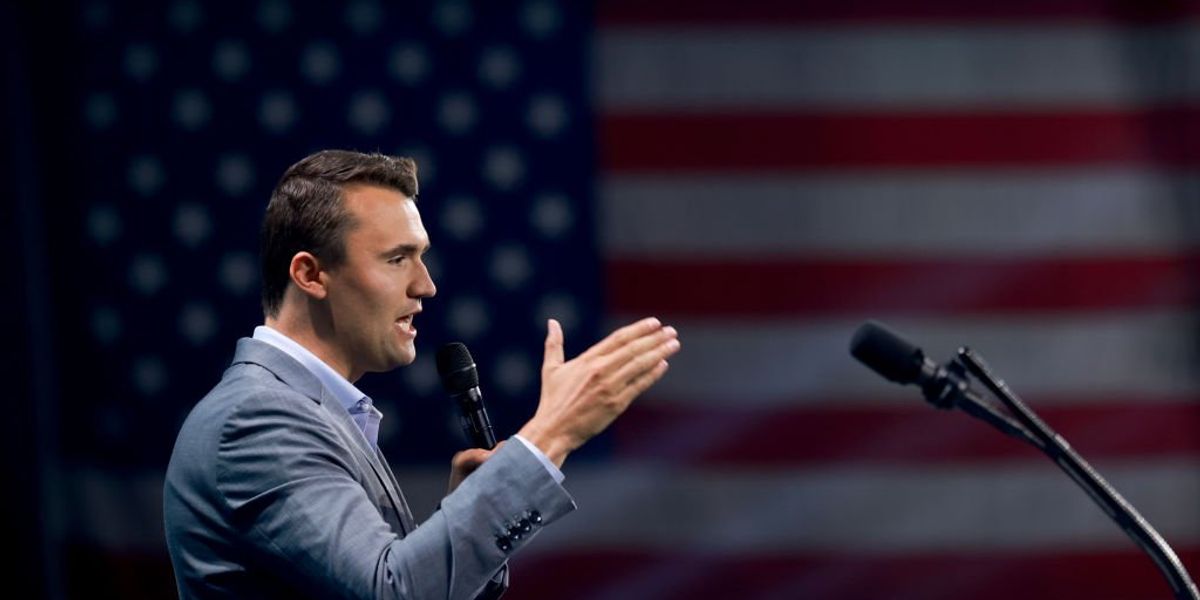
FARMINGDALE, N.Y. — Rory McIlroy was nowhere to be found.
Two years after he had called his shot and predicted a win at Bethpage Black, Shane Lowry’s birdie putt on the 18th green Sunday transformed McIlroy’s comments from confident to prophetic. The celebration, however, had started without him.
A gleeful Lowry bounced to the tune of a heavily European crowd that serenaded him with chants. Jon Rahm hugged fellow Spaniard and vice captain José María Olazábal — captain of the last team to win a road cup in 2012 — who cried on his shoulder. European captain Luke Donald was finally able to exhale.
McIlroy had lost his blockbuster singles match against Scottie Scheffler 1-down and for a moment, the chance of being on the wrong end of the biggest collapse in Ryder Cup history appeared plausible. Down 12-5, the United States team had mounted a comeback and made the Ryder Cup as close as everyone thought it could be.
Suddenly, every point mattered. Suddenly, the United States fans had come alive, chanting for their team and cheering on its golfers rather than jeering at the Europeans. Suddenly, McIlroy had to rely on anyone but himself.
“It obviously was really tight there at the end,” McIlroy said. “It was a bit stressful.”
So McIlroy stayed out on the course, bouncing between Tyrrell Hatton’s match and Robert MacIntyre’s, trying to add support with sheer presence alone. Even when Lowry’s putt that retained the cup dropped, he remained out there through the final match that gave Europe victory on a knife’s edge: 15-13.
“It’s nice to be right. I’m not right all the time,” McIlroy said of his prediction. “I think when we won in Rome, the wheels were set in motion to try to do something that had not been done in over a decade. We believed a lot in our continuity.”
Beyond returning 11 of 12 players from Rome, there is a certain cohesion with this European team that is perhaps difficult to distill but easy to see. It’s there in the way the golfers celebrate when they win a hole or a match, but also in the way they respond when they don’t. It’s palpable when the first place they go to upon making a crucial putt is to relish in the moment with their partner. It’s evident when even the way they embrace projects a kind of closeness that doesn’t signal business partner but rather brother in arms.
PGA Tour, 72-hole stroke play golf requires an immense amount of concentration and focus. It is a singular endeavor that demands patience and rewards consistency more than aggression. Match play and alternate shot format do too, but over the past two Ryder Cups, it has become clear that while the Americans view those formats as obstacles to overcome with talent, the Europeans see it as an opportunity to showcase their unity (they are 14-2 in foursomes over that time). Team play is, unequivocally, their strength and what allowed them to both race out to an insurmountable lead this week and also stem the red tide of points that won or tied 11 of 12 singles matches Sunday.
In nearly every Ryder Cup over the past 12 years, the United States has held the talent advantage. It’s what has led to dominant wins at Whistling Straits in 2021 and Hazeltine in 2016. But even in losses, Europeans found glimmers of joy, in part because of the way they view this week.
“Ryder Cup weeks are the best weeks of our lives,” Donald said. “I think those weeks we spend together are the ones we remember the most and the ones we cherish the most because of the time we get to spend with each other. That’s a big part of my captaincy is to create an environment where these guys are having the best weeks of their lives, honestly.”
It is easy to chalk up the European’s stunning performance through the first two days of this year’s event to things outside of the American’s control.
“They made more putts.” Keegan Bradley said multiple times.
“Luck was on their side,” Bryson DeChambeau said Friday.
Maybe it is that simple. But time and again, Europe has preached and proved that it’s not. That it takes chemistry as much as it takes data. That it takes emotion as much as it takes talent and that it takes precision off the course as much as on it.
“The level of professionalism he’s shown us the last four years,” Jon Rahm said of Donald. “His attention to detail …”
“His communication skills …” McIlroy added.
On Sunday, with the cup already in his hands, Donald allowed a peek into just what some of that looks like. There is the fact that the European uniforms were designed after what each of the past four teams that won on away soil wore, but that’s just where things begin.
Donald said the hotel room where the team is staying this week had cracks in the doors that let light in so they patched them up. He said that the bedding in the rooms only had sheets so they changed it to make it more comfortable for players. He said they swapped out the shampoo in the rooms for one with better smell and better quality.
“It’s just taking the time and having the care that you want to do everything you can to kind of give these guys the best opportunity,” Donald said. “You want to create an environment where they can succeed.”
Perhaps the greatest feat this particular European team has achieved is that, under Donald, they have mastered the balance between preparing for what is tangible — be it exact pairings, bed sheets, time zone differences or nailing down what skill the venue requires — while perfecting the intangible.
“I feel like the power of this, the power of the group, who knows what it is, that ability to lock in, the ability to just want it that little bit more,” Justin Rose said when asked about being the best putter in the Ryder Cup for the second straight time. “The answer to your question is I don’t know, other than the badge and the boys, honestly. That’s all that matters, honestly, the badge and the boys.”
Late Sunday afternoon, with both retention and victory in hand, McIlroy finally made the climb up the 18th, red-faced and running on empty. For three days, he had entered the cauldron of Long Island on a mission, endured it through heckles and insults from American fans, and emerged from it vindicated and victorious, ready to be drowned by a multitude of European supporters who had been waiting to chant his name.
“Roooooory! Roooooory!”
When the Europeans won at Medinah in 2012, he was only 21 years old, playing in his second Ryder Cup. Now, here McIlroy was 36, a Grand Slam champion and at the center of another away victory like a perfect bookend.
“We’ll always remember this. We’ll always go down in history,” Donald said. “Future generations will talk about this team tonight and what they did and how they were able to overcome one of the toughest environments in all of sport and that’s what is inspiring to me, that’s what Rory gets and all these other 11 guys get, as well.”
As Donald finished his answer, sitting next to him, McIlroy wiped the tears from his eyes.



